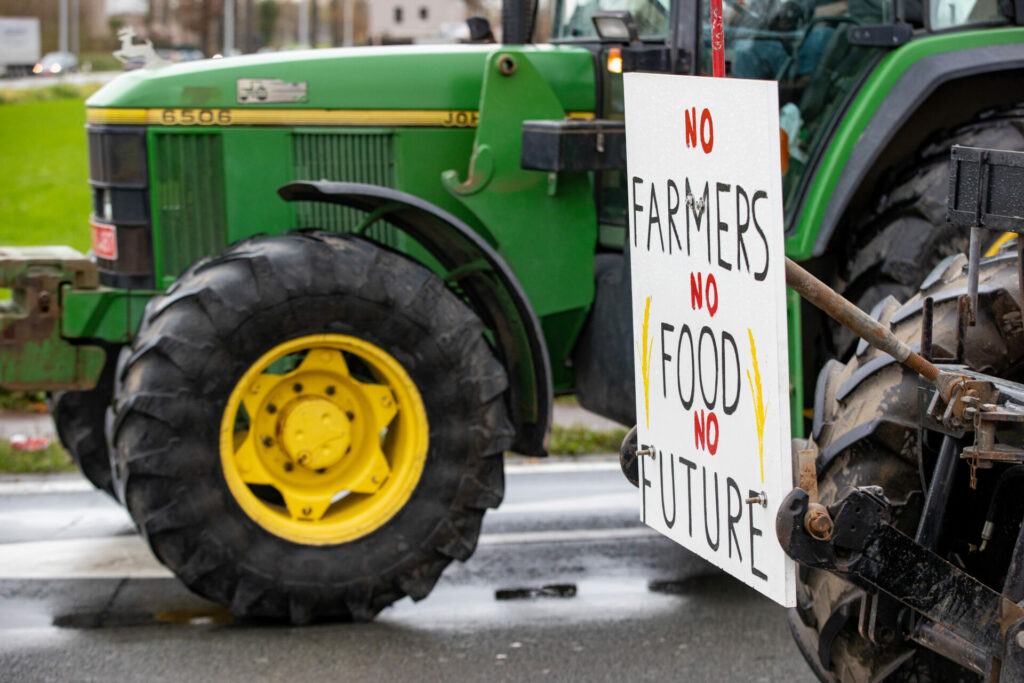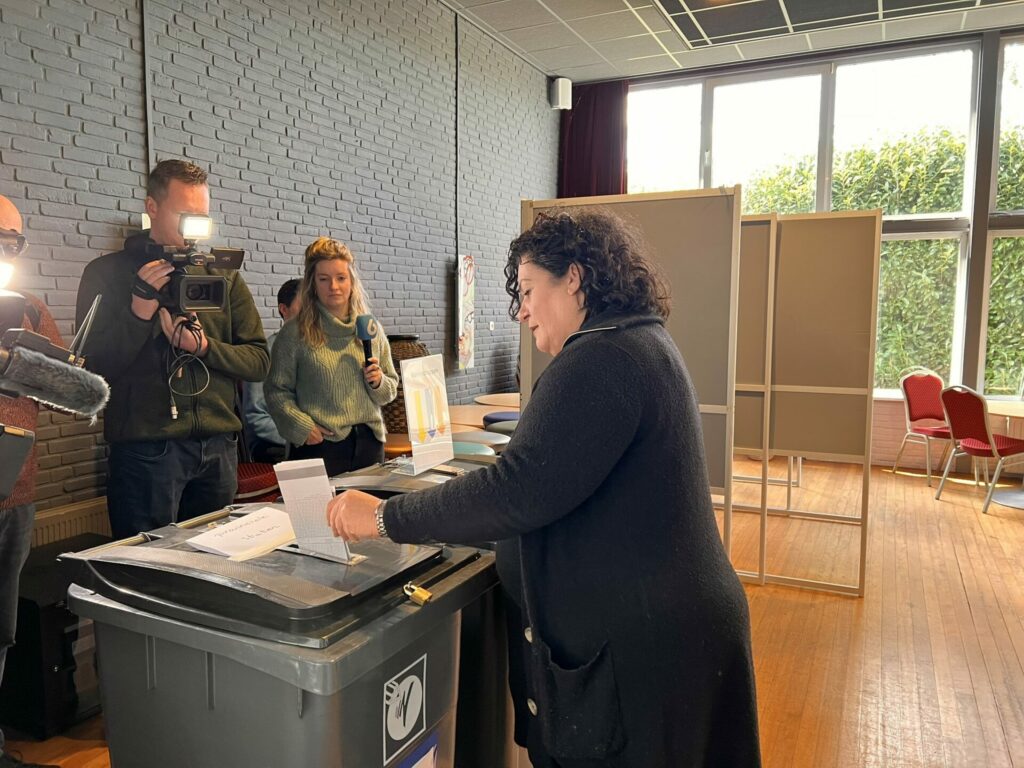The Netherlands witnessed upset in Wednesday's regional elections as the new centre-right agrarian BoerBurgerBeweging party ("Farmer Citizen Movement") emerged as the big winner. In a shock electoral shift, the BBB party won 15 (of 75) seats in the Senate, the first official results show.
The Provincial Council elections decide representatives for Provincial States and water boards. But with local councils sending delegates to the Senate, yesterday's vote has greater bearing at the national level. The results give an important indication of the general opinion of the current government although they are not as important as the national elections for the House of Representatives – which are due to take place in 2025.
With 15 seats, the BBB has become the biggest party in the country, tied with the Partij van de Arbeid/GroenLinks (Labour Party/GreenLeft) coalition, which together took 15 seats. The Dutch Prime Minister's VVD party still has 10 seats.
'Not just about nitrogen'
In the five provinces where all votes have been counted (Friesland, Overijssel, Zeeland, Drenthe and Flevoland), BBB has come out on top. In Overijssel and Drenthe, the party even took over 30% of the vote. BBB leader Caroline Van der Plas was ecstatic about the results: "This is not normal, I never expected this; the main thing is that farmers must have a future."
The party is vociferous in criticism of "commands from The Hague" and has already cautioned against potential efforts to sideline it from legislative decisions by creating a left-leaning majority coalition. BBB's success has come largely thanks to a wave of support from voters that normally don't participate in elections.
Van der Plas thanked them for showing their support and heralded the success a victory for silent citizens. Yet she was eager to stress that the results were about more than just nitrogen, though acknowledged that the population is "fed up" with the government's policy to cut agricultural pollution.
BBB calls for "a realistic policy" in which "the countryside also has a future." Remarkably, the elections mobilised a lot of people as an estimated 61% of Dutch voters went to the polls: the highest turnout in the past 30 years.

Farmers' protest in Belgium. Credit: Kurt Desplenter/Belga
Dutch Prime Minister Mark Rutte admitted that the results were "not the victory [he] hoped for" but congratulated Van der Plas and assured that his government can remain stable in the coming years.
"I do not expect a problem to arise immediately," Rutte told the Dutch NOS media outlet, pointing out that he had previously been able to continue governing with a minority in the Senate. "The cabinet consists of responsible people."
Still, the composition of the Provincial Council is important as decisions on the regional economy and spatial planning are made there, including the interpretation and implementation of the government's highly controversial nitrogen policy.
'Manifestation of dissatisfaction'
Dutch political scientist André Krouwel of the University of Amsterdam (VU Amsterdam) told De Morgen that while the BBB party was created to stop the nitrogen policy in 2019, leader Van der Plas has been able to sense very well what is going on in Dutch society.
"These elections also have the highest turnout in a long time, so it has certainly stirred up something with the voter. You can certainly see this as a protest vote against the (nitrogen) policy. In the Netherlands, about a quarter of voters want to kick against the system. They think it is all going too fast and want to put the brakes on."
Related News
- Belgium in Brief: What's all the fuss with the nitrogen policy?
- 'Teflon' Mark Rutte becomes longest-serving Dutch Prime Minister
- Burning hay, tractor blockages: Farmers protest shocks the Netherlands
He referred to similar situations with big wins for far-right politicians such as Pim Fortuyn and Geert Wilders and recently Thierry Baudet. "This is not a marginal phenomenon. It is a manifestation of dissatisfaction that you see expressed time and again."
Baudet's Forum voor Democratie party ("Forum for Democracy"), which was the big winner during the previous provincial elections four years ago. Yet it has now suffered considerable losses, keeping just two of 12 seats in the Senate.
According to the provisional seat projections, the current coalition parties will soon have 24 seats of the 75 in the Senate (down from 32 now). However, those results may change again in the coming hours, because the provisional results of a number of larger municipalities have yet to arrive.

